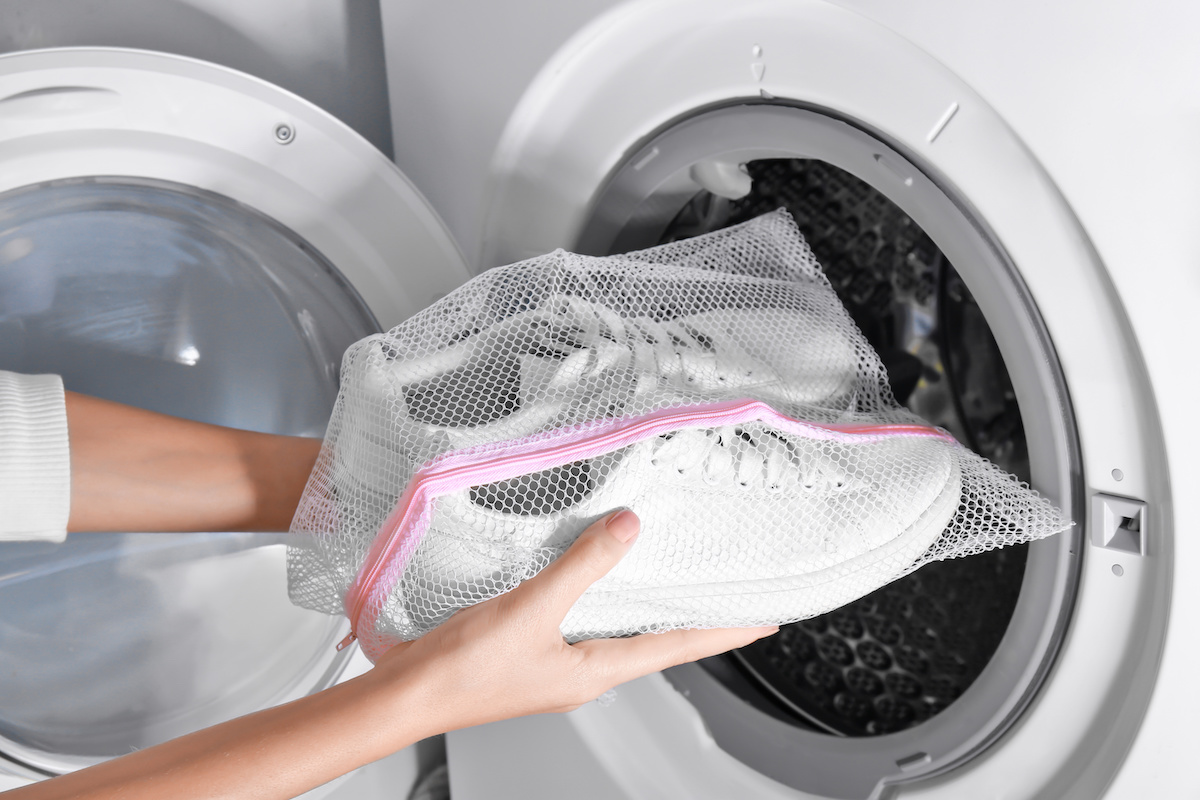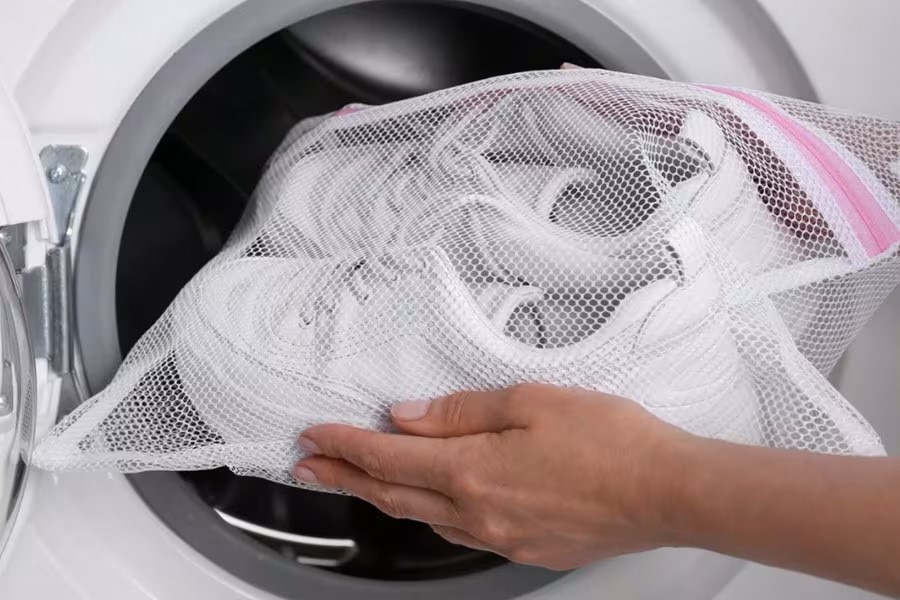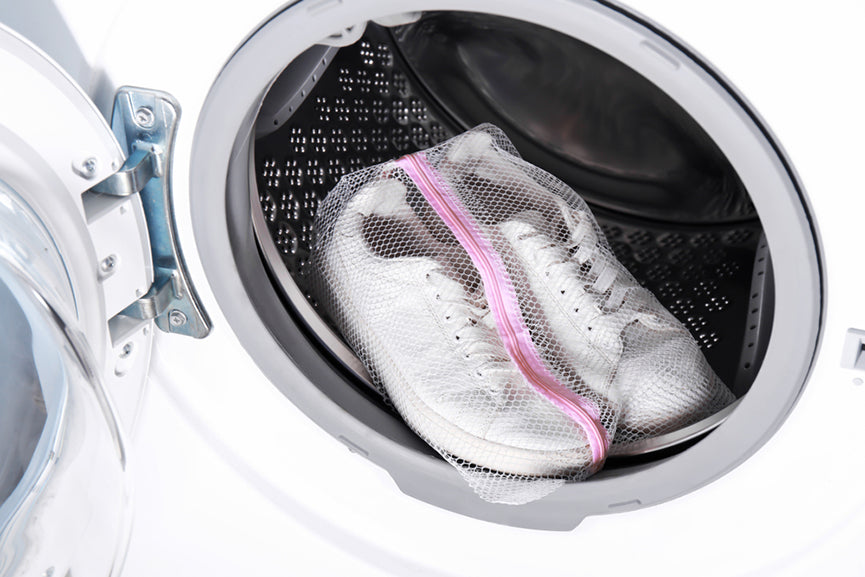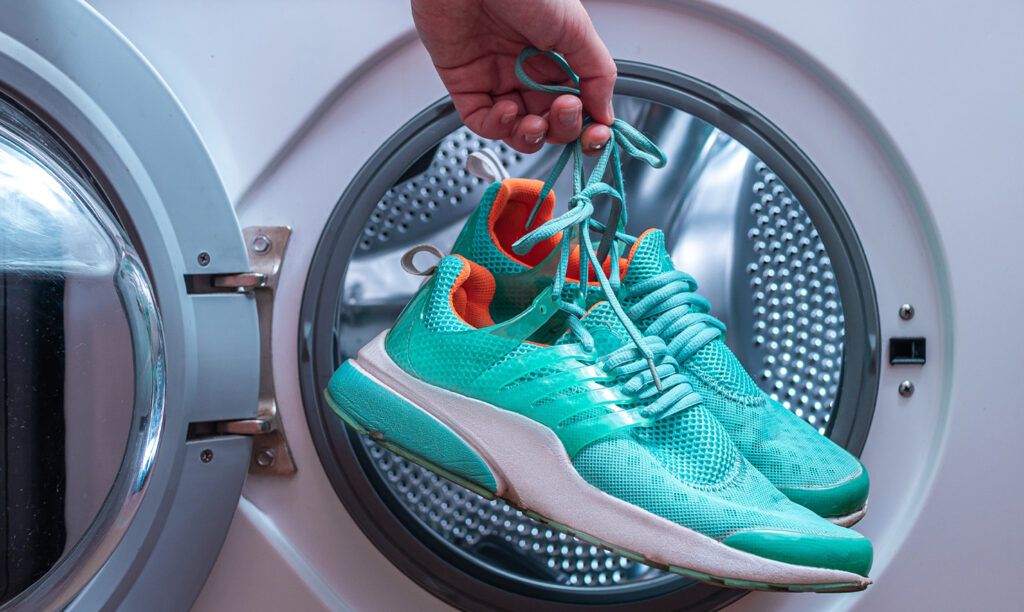Introduction: The Importance of Keeping Shoes Clean
As a shoe enthusiast or even a casual walker, you probably know that shoes can accumulate dirt, grime, and even unpleasant odors over time. Keeping your footwear clean is not only essential for aesthetics but also for the longevity of the materials. Washing shoes in a washing machine can be a game-changer – it saves time and effort while ensuring your shoes receive a thorough clean. In this guide, we’ll explore how to wash shoes in a washing machine safely and effectively, ensuring they look brand new.
Types of Shoes You Can Wash in a Washing Machine
Canvas Shoes
Canvas shoes, particularly popular brands like Converse and Vans, are among the easiest to clean in a washing machine. They are durable, lightweight, and often made of materials that can withstand the wash cycle.
Sneakers
Most fabric sneakers can be machine washed, though it’s crucial to check the manufacturer’s guidelines first. Brands like Nike, Adidas, and New Balance often recommend machine washing for certain models, especially those made of mesh or synthetic fabrics.
Flip-Flops
While generally not the first type of shoe to think about washing, rubber flip-flops can also go through a cycle. This works particularly well for those that have accumulated sand and dirt after a day at the beach.

Boots (Select Types)
Some soft-shell boots, especially those made from synthetic materials, can be washed in a machine. However, leather and heavy-duty boots usually require special care. Always check the label before proceeding.
Preparing Your Shoes for the Wash
Step 1: Remove Laces and Insoles
Before tossing your shoes into the washing machine, remove the laces and insoles. Washing laces separately will prevent tangling and allow them to clean more effectively. Insoles should be hand washed to maintain their shape and integrity. You can soak them in warm soapy water and gently scrub them with a soft brush.

Step 2: Brush Off Dirt and Debris
Take a soft-bristled brush or an old toothbrush to scrub off any loose dirt and debris from your shoes. This step helps avoid mud and grime from becoming embedded in the fabric during the wash, leading to a more thorough clean.
Step 3: Check Care Labels
It’s essential to check the care label on your shoes. If it says “hand wash only” or “do not machine wash,” it’s crucial to adhere to those instructions, as machine washing could damage the shoes.

Step 4: Use a Laundry Bag
Placing your shoes in a laundry bag will help protect them during the wash cycle. The bag acts as a barrier, preventing your shoes from banging against the drum and potentially being damaged or losing shape.
Choosing the Right Washing Settings
Water Temperature
Selecting the right water temperature is critical. Generally, cold water is best for washing shoes, as it helps prevent colors from fading and materials from shrinking. Hot water can be effective in removing tough stains, but it’s not always safe for all fabrics.

Washing Cycle
Opt for a gentle cycle to ensure your shoes are cleaned without unnecessary agitation that can break down materials. The gentle cycle is less likely to cause wear and tear and can effectively clean your shoes without significant damage.
Detergent Selection
Use a mild detergent when washing shoes. Harsh detergents can damage the fabric or finish of your shoes. Look for eco-friendly detergents or those specifically designed for delicate fabrics to ensure a safe wash.

Post-Washing: Proper Care for Your Shoes
Step 1: Air Drying
After washing, it’s crucial to air dry your shoes. Never put them in the dryer, as the heat can warp or damage the materials. Instead, stuff them with newspaper or paper towels to help them maintain their shape while they dry. This method also helps absorb moisture.
Step 2: Replacing Laces and Insoles
Once your shoes are completely dry, you can replace the laces and insoles. If the insoles have a lingering odor, consider sprinkling baking soda on them overnight to neutralize smells.

Step 3: Regular Maintenance
To prolong the life of your shoes, regular maintenance is key. Clean your shoes every few weeks or as needed based on usage. Spot clean when necessary to prevent dirt buildup between wash cycles.
Case Studies: Real-World Experiences
Case Study 1: The Busy Mom
Linda, a busy mom of three, found herself overwhelmed by the amounts of mud and grass stains on her children’s sneakers. After discovering that she could wash their shoes in the washing machine, she adopted this method regularly. Not only did it save her time, but it also kept her kids’ shoes looking fresh and new. She emphasized the importance of removing insoles and laces beforehand, as it made a noticeable difference in cleanliness.

Case Study 2: The Fitness Enthusiast
James, an avid runner, often faced the dilemma of dealing with smelly running shoes. After doing some research, he started washing his shoes in the washing machine every few weeks. By opting for a gentle cycle and air-drying them, he managed to eliminate odors while preserving their structure. He recommended using vinegar in the wash cycle as a natural deodorizer, which worked wonders for his favorite running shoes.
Tips for Washing Different Types of Shoes
Tip 1: Leather Shoes
While it is generally not advisable to wash leather shoes in a washing machine, they can be cleaned with a damp cloth and a leather conditioner. If you must use a washing machine, select a delicate cycle and cold water, but this should be a last resort.
Tip 2: Sports Shoes
For sports shoes made with synthetic materials, washing in a machine can be effective. Always check the manufacturer’s guidance and avoid washing shoes with metal eyelets or embellishments, as these can get damaged.
Tip 3: Wedding and Formal Shoes
Formal shoes are best left to professionals for cleaning. However, for fabric formal shoes, you may opt for a gentle hand wash rather than risking the machine. Spot cleaning is the safest method for maintaining their pristine condition.
Comparison Table: Machine-Washable vs. Hand-Washable Shoes
| Type of Shoe | Machine Washable | Hand Washable |
|---|---|---|
| Canvas Shoes | ✔️ | ✔️ |
| Sneakers | ✔️ | ✔️ |
| Leather Shoes | ❌ | ✔️ |
| Flip-Flops | ✔️ | ✔️ |
| Formal Shoes | ❌ | ✔️ |
Pros and Cons of Washing Shoes in a Washing Machine
Pros
- Time-saving: Machine washing is quicker than hand washing.
- Thorough cleaning: The agitation ensures a deep clean.
- Convenience: Easy to throw them in and let the machine do the work.
Cons
- Risk of damage: Not all shoes are designed for machine washing.
- Loss of shape: Shoes may lose their form if not dried correctly.
- Potential discoloration: Colors may fade or run in hot water.
Frequently Asked Questions (FAQs)
1. Can all types of shoes be washed in a washing machine?
No, not all shoes are suitable for machine washing. Always check the care label before proceeding.
2. How can I remove tough stains from shoes before washing?
Spot cleaning with a mixture of warm water and detergent or using a stain remover can be effective for tough stains.
3. Is it safe to wash shoes with other laundry items?
It’s best to wash shoes alone or with similar colors to avoid color transfer and damage to other clothing.
4. Can I use bleach to wash white shoes?
Using bleach is not recommended as it can damage the fabric. Instead, try a gentle detergent specifically designed for whites.
5. How do I prevent my shoes from losing shape in the wash?
Stuff your shoes with newspaper or towels to help them maintain their shape while air drying.
6. What should I do if my shoes still smell after washing?
Sprinkling baking soda inside the shoes can help neutralize odors. Let it sit overnight before shaking it out.
7. Can I use fabric softener when washing shoes?
It is typically not recommended, as fabric softener can leave residues that build up in the material over time.
8. What is the best way to dry my shoes after washing?
Always air dry your shoes. Avoid using direct heat sources like a dryer or radiator as they can damage the shoes.
9. Should I wash my shoes frequently?
This depends on usage. Generally, washing them every few weeks is sufficient unless they become heavily soiled.
10. Are there specific detergents recommended for washing shoes?
Yes, using a mild detergent or one labeled for delicates is best to prevent damage to the fabric.